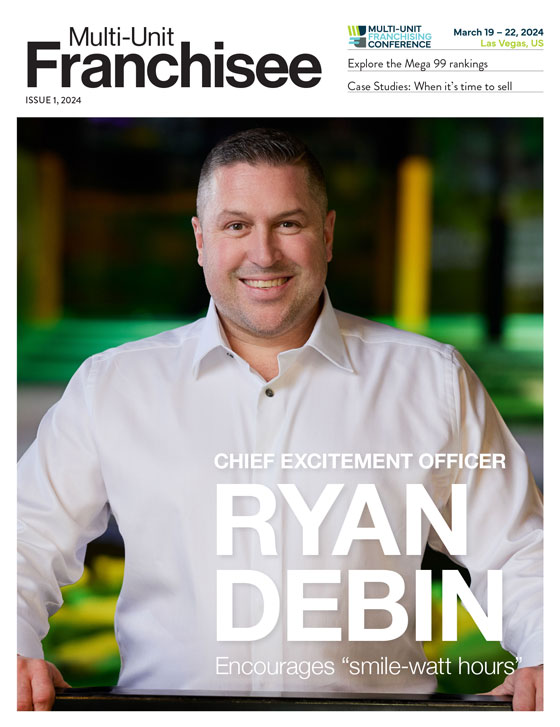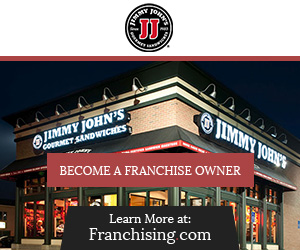Before and After the Sale: Selling a business requires professional and personal planning

Articles and white papers focus on maximizing value when preparing your business for sale. Oftentimes, these articles emphasize that successful planning and preparation increases the chances of a successful closing by meeting the requirements of the buyer, seller, and third parties, such as franchisor, business partners, and capital providers. However, it’s also important to think about the personal side of the sale and consider what life will be like after the transaction.
Professional planning
Financial, due diligence, and process planning should begin 12–18 months before initiating a formal sale process. Franchisees should focus on what they can control. COGS and labor should be at the forefront. Consider the inventory and ordering practices of your management team. Are there ways to save time, expense, and waste? Labor should also be monitored to avoid overtime, unnecessary regulatory fees, and overstaffing/understaffing.
A supply chain and purchasing review can quickly reduce costs. Many small to mid-sized firms have unnecessary increases in food, paper, and labor combined with distribution markups. Carefully audit all your skews for pricing, quality, and total cost, including distribution. Several firms that conducted pricing reviews saved 12–15% on overall purchases, reducing COGS by 2–4%.
After key expenses have been thoroughly examined, develop a plan to improve EBITDA with minor adjustments. Be prepared to answer questions from the buyer because disclosure will gain trust. Buyers almost always identify issues through due diligence and/or a QOE report. Focus on maximizing results in the short term without compromising the company’s long-term prospects. We recommend reviewing all addbacks or adjustments to ensure a positive third-party review. A longer timeframe for improvements should produce higher savings and positive adjustments to EBITDA.
Eliminate unnecessary expenses and projects that have a marginal ROI. Work with franchisors and landlords to close underperforming stores to increase value. Negative EBITDA stores often compromise value more than operators realize. Negotiate rents on marginal stores that cannot be closed, and avoid spending on remodeling projects with little upside.
Identify team members that will likely stay with the business after the sale. Consider an amended compensation plan to emphasize improvements to KBIs. When telling vital employees about the sale, let them know how they can benefit. In most cases, a buyer will retain key operating employees and all store management and crew.
Study the requirements of your franchise agreements and the rights of the franchisor. It is best to avoid this discussion with a franchisor until late in the process. Organized franchisees that present a qualified buyer and a signed agreement have the best probability for a successful transaction.
Personal planning
Many sellers focus their efforts on the economic and valuation aspects of the sale without fully considering whether the sale, timing, and eventual exit make sense for the seller personally. We often work with sellers who have decided to sell without thinking about the magnitude of their decision. We do not subscribe to this approach. Sellers are often surprised by how their lives outside of the core business will be affected. Self-reflection is important, and sellers should take time to consider the bigger picture:
- Why are you contemplating a sale? Why now?
- Do you have other businesses that you’ll retain post sale?
- How will you spend your time after the transaction?
- Can you move on to the next phase of your life seamlessly?
Keep in mind that cleaning up paperwork and closing the business will occupy a lot of time in the first six months. We’ve worked with owners who have not planned, had limited hobbies, and had a hard time adjusting to life post sale.
Partners and family
It is essential to discuss your decision early with your business partners. Ensure your interests are aligned and there are no surprises for the partners in valuation, process, and post-sale proceeds expectations. Partners will need to consider their next steps personally and professionally as well. They may also be potential buyers, and discussions should happen early in the process.
Family discussions should be contemplated early as well. Are other family members involved in the business? How will you address their needs? Have you fully discussed and evaluated the event with your spouse and/or partner? Are they supportive of the transaction?
Retirement planning
Have you worked with your tax and financial advisors on tax planning and post-tax proceeds? Will the amount be sufficient to move to the next phase? Can you imagine your identity without being an owner or franchisee of that business? Hobbies, interests, and other business investments can keep you busy post sale. Have a reasonably good idea of how you will fill your time and a plan to execute it. In some cases, a life or business coach might be retained to help you through the process.
While the business and economic reasons for a sale are critically important, don’t ignore the personal aspects and how your life will change. No one will ever have all their questions answered on life post sale. Nevertheless, planning for the business and personal aspects of the transaction is key to a smooth sales process.
Carty Davis is a partner with C Squared Advisors, a boutique investment bank that has completed hundreds of transactions in the multi-unit franchise and restaurant space. Since 2004, he’s been an area developer for Sport Clips in North Carolina with more than 70 units. Contact him at 910-528-1931 or [email protected].
Share this Feature
Recommended Reading:
FRANCHISE TOPICS
- Multi-Unit Franchising
- Get Started in Franchising
- Franchise Growth
- Franchise Operations
- Open New Units
- Franchise Leadership
- Franchise Marketing
- Technology
- Franchise Law
- Franchise Awards
- Franchise Rankings
- Franchise Trends
- Franchise Development
- Featured Franchise Stories
FEATURED IN

Multi-Unit Franchisee Magazine: Issue 1, 2024

$250,000
$100,000





 The multi-unit franchise opportunities listed above are not related to or endorsed by Multi-Unit Franchisee or Franchise Update Media Group. We are not engaged in, supporting, or endorsing any specific franchise, business opportunity, company or individual. No statement in this site is to be construed as a recommendation. We encourage prospective franchise buyers to perform extensive due diligence when considering a franchise opportunity.
The multi-unit franchise opportunities listed above are not related to or endorsed by Multi-Unit Franchisee or Franchise Update Media Group. We are not engaged in, supporting, or endorsing any specific franchise, business opportunity, company or individual. No statement in this site is to be construed as a recommendation. We encourage prospective franchise buyers to perform extensive due diligence when considering a franchise opportunity.